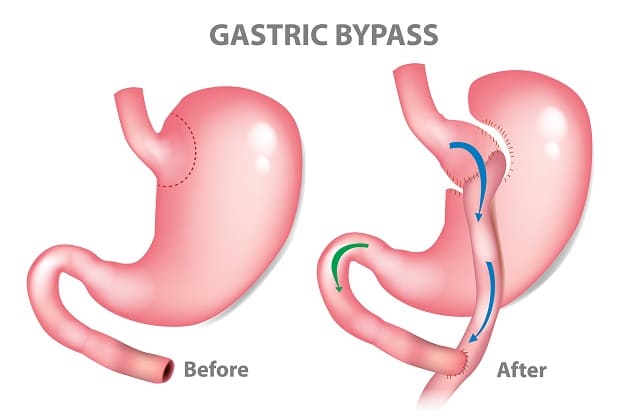
February 15, 2021
Roux-en-Y gastric bypass (RYGB) is a type of bariatric surgery that is done laparoscopically or robotically. The procedure helps in reducing the size of the upper stomach to a small pouch that is about the size of an egg. Weight-loss specialists make small incisions in the abdomen and staple the upper section of the stomach to reduce the amount of food intake. They then attach the pouch to the roux limb, a part of the small intestine, forming a “Y” shape. Food bypasses the upper part of the small intestine and rest of the stomach which reduces the amount of fat and calories the body absorbs. The entire procedure also decreases the number of minerals and vitamins the body absorbs from food. Continuing on the topic, in this post, we discuss all you need to know about Roux-en-Y Gastric Bypass. Read on!
Preparation for Roux-en-Y Gastric Bypass Surgery
Generally, the preparation for all traditional as well as Robotic bariatric surgeries is the same. The weight loss specialist will first make sure that you are a candidate for the procedure. They will also advise against abuse of alcohol and medicines and discuss the need to commit to a lifestyle change when it comes to exercise and diet habits. Doctors may also ask you to enrol in a bariatric surgery education program to understand the life before and after the surgery and get nutritional counseling.
You will also go through a psychological evaluation, physical exams, blood tests, imaging studies of your stomach, and upper endoscopy. Doctors recommend stopping smoking and drinking a few months before surgery and may also ask you to first shed some weight, if possible. You may also be asked to stop taking ibuprofen, aspirin, and other blood-thinners a few days before surgery. You will also not be allowed to eat or drink anything a few hours before surgery.
Procedure
Gastric bypass usually takes several hours. Before the surgery, your weight loss specialist will ask the anesthesiologist to administer general anesthesia, which will cause you to sleep throughout the procedure so that you do not feel any pain or discomfort. They make several small incisions in your abdomen to insert a laparoscope and mini surgery tools. They will then make a small pouch in the upper stomach with the help of a laparoscopic stapler. They will also divide the roux limb into a tube with two ends. The first end of the limb is attached to the stomach pouch and the other end is connected to another part. In the end, the surgeons will test for any leaks with the help of an upper endoscopy and dye study.
Post-Surgery Expectations
You may be asked to stay in hospital under observation for a day or two. During the stay, a weight loss specialist will give you guidance about safe pain relievers, wound care, and when you can resume normal activities. Any traditional or robotic bariatric surgery may have some side effects. You must consult with your doctor immediately if you experience fever, painful wounds with fluid leaks, trouble breathing, coughing, vomiting, diarrhea, and pain in the chest, abdomen, and legs after gastric bypass.
For a few weeks, you will likely take liquids, after which your doctor may ask you to start a soft diet. Make sure that you chew your food thoroughly and drink water at least 30 minutes after meals so that the food gets digested properly. Make sure that you take all your minerals and vitamin supplements regularly to avoid malnutrition and weakness. As nutritional deficiencies can happen after this surgery, doctors will recommend getting a blood test every 6 months for the rest of your life to make sure that you are not having any deficiency. Make sure that you go for regular follow-up appointments and meetings with your dietitian to understand how your body is dealing with the effects of weight loss and change in food habits.
Wrap Up
Gastric bypass ensures rapid weight loss if you adhere to the diet and exercise recommendations prescribed by your weight loss specialists. There may be a few minor side-effects of the procedure that fade away with medication. If you experience prolonged problems, consult with the doctor immediately. To know more about gastric bypass and other available traditional and robotic bariatric surgeries or revision weight loss surgery in Dallas and Fort Worth, Texas, get in touch with the experienced team at DFW Bariatrics and General Surgery. The seasoned weight loss doctors will help identify the best weight-loss procedure for you and guide you through your weight loss journey. Call 469-620-0222 or email [email protected].
